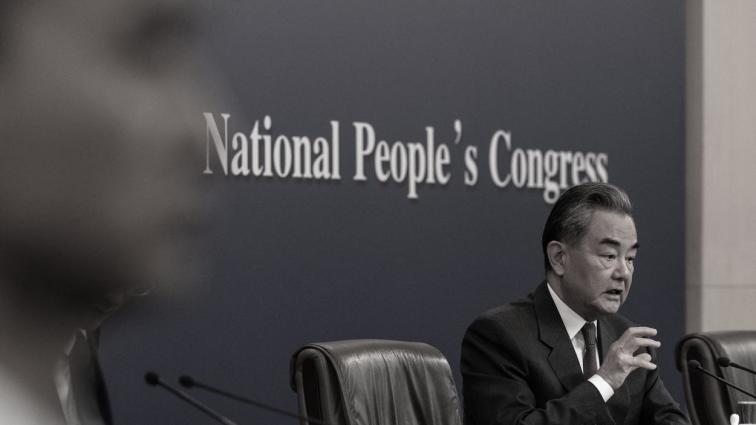The U.S. Capitol building is pictured on Capitol Hill in Washington
[People News] On Wednesday (September 10), the U.S. House of Representatives passed the Fiscal Year 2026 National Defence Authorisation Act (NDAA), which includes numerous provisions to counter the Chinese Communist Party (CCP) and significantly increases the authorised funding for Taiwan’s security assistance.
According to Voice of America, Representative John Moolenaar, a Republican from Michigan and Chairman of the House Select Committee on the Strategic Competition Between the United States and the Chinese Communist Party, stated in a press release on Wednesday that the amendment he introduced, including the SAFE Research Act, was incorporated into and passed as part of the NDAA. It will prohibit federal funds in the STEM (Science, Technology, Engineering, and Mathematics) fields from being allocated to universities or researchers who cooperate with the CCP military and intelligence agencies.
Another amendment introduced by Moolenaar, which received bipartisan support, was also successfully included in the NDAA. This amendment requires the Department of War (Department of Defence) to assess the security risks of artificial intelligence and America’s position in the AI competition relative to China.
Representative Moolenaar said in his statement: “This bill plays a critical role in advancing America’s national security in the face of threats from the CCP.”
Moolenaar mentioned that the Fiscal Year 2026 NDAA includes key provisions pushed by him and Republican members of the Select Committee on the CCP issue, such as:
Strengthening Indo-Pacific Security:
Expanding the critical “Taiwan Security Cooperation Initiative” (TSCI), authorising up to $1 billion in security assistance for Taiwan in Fiscal Year 2026. By comparison, the FY2025 NDAA passed by Congress in 2024 approved $300 million for the TSCI, while the FY2026 Defence Appropriations Bill passed by the House this July allocated $500 million for the initiative.
Requiring the development of a strategy to counter CCP weapons sales.
Establishing a strategic defence technology partnership between the Pentagon and Taiwan’s procurement offices.
Expanding reporting requirements regarding Taiwan’s readiness capabilities and contingency planning with U.S. allies.
Requiring a report on NATO and EU contributions to Indo-Pacific security.
Promoting Federal Research Security, Technology, and Innovation:
Prohibiting the awarding of federal research funds to individuals affiliated with hostile foreign entities, prohibiting the Pentagon from funding universities that cooperate with hostile foreign entities, and requiring disclosure of connections with adversarial foreign entities, funding, or activities.
Directing the Pentagon to establish an operational initiative to fully harness advanced AI, modernise adoption plans, and analyse and compare the capabilities of the United States and the People’s Republic of China in advanced AI.
Expanding restrictions on the operation of unmanned aerial systems of foreign adversaries within the U.S. based on language in the FY2025 NDAA.
Authorising $5 million for smart sensor technology.
Strengthening the Defence Industrial Base and Supply Chain Security:
Directing the Pentagon to establish and maintain a priority list of high-risk DoD critical infrastructure dependent on materials or components from foreign adversaries such as China.
Directing the creation of a report and recommendations on establishing a “Strategic Spaceport Program,” modelled on the support provided through the “Strategic Seaport Program.”
Establishing a National Defence Industrial Resilience Consortium to address industrial base challenges and strengthen resilience.
Directing the creation of a working group within the Consortium to review and improve Pentagon policies regarding the qualification, acceptance, and management of supply chains through advanced manufacturing.
Reinforcing the FY2024 NDAA’s provisions prohibiting the Pentagon from purchasing advanced batteries from foreign entities of concern.
Tasking the Pentagon to identify regulatory or policy barriers preventing the expansion of the defence industrial base surge capacity.
Directing the National Commission on the Future of the Navy to study the state of America’s maritime industrial base, including its ability to meet defence needs and support naval recapitalisation.
Requiring the Defence Health Agency to conduct a supply chain risk assessment of medical products dependent on Chinese components.
The NDAA is an essential annual bill that authorises U.S. defence spending and sets military policy directions and priorities. On Wednesday, the House passed the Fiscal Year 2026 NDAA by a vote of 231 to 196, totalling $893 billion. The bill includes a 3.8% pay raise for service members.
Representative Moolenaar said in Wednesday’s statement: “The NDAA is critical to supporting our brave men and women in uniform. It improves their quality of life by providing their families with the pay raises and benefits they deserve. This legislation ensures our military remains the most powerful fighting force in the world and builds peace through strength to deter our adversaries.”
House Armed Services Committee Chairman Mike Rogers, a Republican from Alabama, issued a statement Wednesday praising the House’s vote. He said: “Today’s vote to advance the FY2026 NDAA is a vote to advance the modernisation of our military, support our troops, and restore America’s deterrence. At a time when we are facing the most complex global threat environment since World War II, it is critical that America has a ready, capable, and lethal fighting force to defend our homeland.”
Due to strong opposition from Democrats to certain amendments involving U.S. social issues, most Democratic representatives voted against the NDAA.
Under U.S. legislative procedures, a bill must be passed by both the House and the Senate in identical text and signed by the President before it can become law. Senators are currently debating the Senate’s version of the FY2026 NDAA.
△











News magazine bootstrap themes!
I like this themes, fast loading and look profesional
Thank you Carlos!
You're welcome!
Please support me with give positive rating!
Yes Sure!